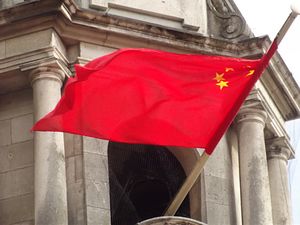Predicting China’s future has been one of the great games of the last half a century. Famously, in the period up to 1978 when the Third Plenum of the Eleventh Congress of the Communist Party of China (CPC) announced, albeit in muted and barely comprehensible terms, a revolution, heralding in the era of reform and opening up, not a single Western economist foretold what was about to happen in terms of China embracing entrepreneurialism, a semi-free market, and foreign capital.
Roger Irvine’s overview of predictions made about the People’s Republic in the last decades, Forecasting China’s Future (Routledge, 2015), gives an entertaining overview of just how wild and various the tea leaf readers’ opinions have been. Only diplomat and academic Stephen Fitzgerald, then serving as Australian ambassador in Beijing, intimated with any accuracy what was about to happen after 1976. He saw the fundamental redundancy of the Gang of Four and their political posturing. He also saw the unsustainability of the economically autarkic, bankrupt ultra-leftism that prevailed in China then. His words were shrewd. In a matter of months, rather than years, the edifice that everyone else seemed to believe would last forever was gone.
Pundits did little better in 1989, when the Tiananmen Square Massacre seemed to forestall the demise of the regime – an idea backed up by the collapse of Communist systems elsewhere. But as we now know, the Communist Party not only survived in China; in some respects, it prospered. China seems to delight in bucking trends elsewhere.
Looking at more recent predictions for China’s short- to medium-term future, one striking feature was the assumption that its domestic issues, and its frozen political reform, were matters that could not be perpetually ignored. Somehow, there had to be radical change. It was not a matter of if, but of when. For most of these models, the outside world was a reassuringly stable, predictable place, particularly the United States and Europe. Their political systems had largely endured for hundreds of years. Their sense of rule of law and institutional development predated the PRC. The overwhelming assumption was that the Chinese political model was more vulnerable, less enduring, and more feeble than the multi-party democracies elsewhere in the world.
In 2017, we have to revisit this assumption and radically rethink things. Europe and America are now beset with their own worries. If Marie Le Pen is elected in the French presidential race later this year, Europe’s future will become as uncertain and perplexed as the one we used to posit for China.
In this context, we will live with a massive paradox. The one-party system in China, largely eschewed and rejected elsewhere, will look steadier and stronger than many others. The years of bullying, cowing, and threatening opponents will have paid off for the Party-State leaders in Beijing. To Xi Jinping and his colleagues, while European and American systems will have been placed in semi-crisis because of their tolerance for dissent, their openness and diversity, the brutal simplicity and logic of the Chinese system will look stable and reassuring. These leaders will feel more vindicated by the day.
Even worse, any weakening of China now while the rest of the world is so troubled and perplexed would be making a mild nightmare into a very terrible one. The world cannot take much more uncertainty and instability. China’s system may be harsh and authoritarian, but at least it supplies some much needed predictability. It might not be nice, but at the moment any predictability is good. Who would really be able to urge the Communist Party to engage in risky reforms when there is so much that could go wrong elsewhere? Best just leave things as they are until some point in the future when the world is a bit more stable.
There is one big opportunity in all of this for the developed world. The current situation pushes back against the position Chinese leaders and politicians have adopted over the last 50 years, of being victims, and of the world outside owing them apologies and generosity. This is no longer the case. Europe and America look in bad shape at the moment. In many ways, they have replaced China as the victims of falling growth, angry populaces, and divisive internal politics; they are the ones that need help. For the first time in modern history we are likely to see humbled leaders of places like the U.K., France, and the United States beating a path to Beijing and asking it to open its markets more and become a more equable trade partner – in other words, be generous, and do favors for others rather than taking them.
Things may well ultimately right themselves. The old patterns might return. But it is highly unlikely that everything will be as it once was. The one conclusion we can draw at the moment while all this change is underway is that China the victim is now gone. We are living in the era of China the winner. And the interesting question is just how comfortable not only the world, but also China itself, will be with this. Being the underdog and carping at others is a great place to be. Having the upper hand and needing to take responsibility is often far, far tougher. China is about to find out why.

































